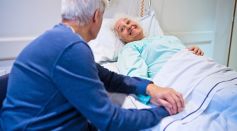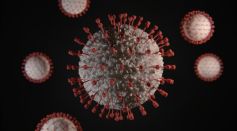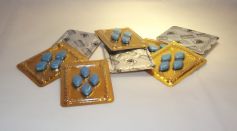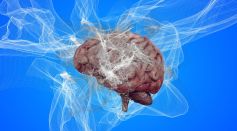Tags: Dementia

Music's Role in Treating Chronic Pain, Dementia

New Cognitive Screening Tool Can Help Predict One’s Risk for Dementia

Terminal Lucidity Explained: How Does a Person With Dementia Experience Mental Clarity Before Death?

COVID-19 Linked to Increased Dementia Risk: Fulfills Bradford Hill Criteria for Neuronal Damage

Viagra May Help Ward Off Dementia by Improving Blood Flow to Brain, Study Suggests

Sundowning Explained: Why Do People With Dementia Become More Confused in Late Afternoon and Into the Night?

Asymptomatic Alzheimer's Disease: Some Brains Found to Exhibit Signs of the Neurological Disorders, With No Symptoms Exhibited When Person Was Alive [STUDY]
Humans Brains Are Growing in Size, Possibly Lowering Risk of Dementia
Wendy Williams’ Dementia Is Alcohol-Induced, Her Son Says; Everything You Need to Know About the Condition
![11 Biomarkers in Blood Could Help Predict Dementia 15 Years Before Symptoms Show With 90% Accuracy [Study]](https://d.sciencetimes.com/en/full/51959/11-biomarkers-blood-could-help-predict-dementia-15-years-before-symptoms-show-90-accuracy-study.jpg?w=237&h=131&f=8591a3d957dab8940e6169b1367ad0d5)
11 Biomarkers in Blood Could Help Predict Dementia 15 Years Before Symptoms Show With 90% Accuracy [Study]

Alzheimer’s Mysterious Origins May Be Driven by “Exhausted” Immune Cells, Study Reveals

15 Factors Linked to Young-Onset Dementia Risk, Largest Study Reveals
![Irregular Sleep Patterns May Increase Risk of Dementia [Study]](https://d.sciencetimes.com/en/full/50767/irregular-sleep-patterns-may-increase-risk-dementia-study.jpg?w=237&h=131&f=e8d52dd20beda4b1e8f2d1d3cac8ea41)
Irregular Sleep Patterns May Increase Risk of Dementia [Study]

Nanoplastics Could Affect Brain Protein That Causes Changes Associated With Dementia Types and Parkinson's Disease, Study Reveals

Eating Strawberry Could Reduce Risk of Developing Dementia For Some People in Middle Age, Study Reveals
Tai Chi Exercise Helps Boost Memory, Could Help Adults Counter Mild Cognitive Decline

Dementia's Escalating Threat in England and Wales: New Estimates 42% Higher, Challenging Healthcare System
Surgery-Free Brain Stimulation Uses Implanted Electrodes As New Treatment Method for Dementia

Adults Diagnosed With ADHD May Face Higher Risk of Dementia, Study Suggests

Scottish Man Diagnosed With Dementia at Only 55 Years Old, Shares Early Warning Signs of Alzheimer’s Disease
Most Popular

Trump Administration Declares COVID-19 Likely Originated from Wuhan Lab Leak, Citing Scientific Evidence

Mysterious Structures Discovered Beneath the Pacific Ocean, Puzzle Scientists

Largest Known Volcanic Aquifer Discovered Beneath Oregon's Cascades

New 'Supergiant' Sea Bug Found in South China Sea, Named After Darth Vader





